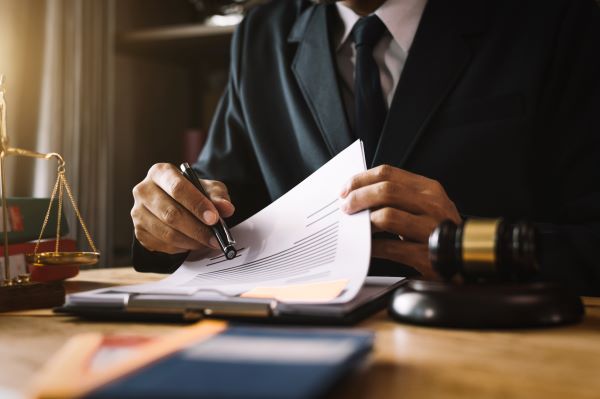Social Security serves as a federal initiative aimed at providing a support network for the…

Questions for Elder Law Attorneys
Planning for the future and considering financial matters can be a challenging and emotional experience. However, it is crucial to wisely manage your assets while aging and provide for the family members who will survive you. Your elder law attorney knows how to create an estate plan strategy that addresses these concerns.
Keeping Records and Detailed Instructions
Many people want to ensure orderly asset protection, management, and eventual administration while having flexibility if circumstances change. Wealth preservation is the main priority, and it requires accuracy. Over time, you may have assets in multiple states, and it’s important to document the status of any community or tenant-occupied property. An inventory of small business assets and their dispersal may also be necessary. Often individuals will want to name children as legal guardians if they become incapacitated and take steps to ensure heirs and loved ones are designated as legal beneficiaries of the estate. Detailed instructions reduce conflicts, minimize legal expenses, and reduce taxes to ensure heirs receive the full value of their portion of the estate.
Estate Planning and Elder Law Attorneys
Finding an elder law attorney whose primary focus is estate planning will give you options to achieve your goals. This specialized attorney will be current with changes to legal statutes in your state. An elder law attorney can develop an asset protection strategy, update your estate plan over time, and can administer your estate with greater efficiency. Executing a will or acting as trustee of an estate frequently requires the support of a professional. It also removed the burden from family members.
Core Planning Documents
Comprehensive estate plans have foundational documents, including a will, a trust(s), and health care directives like a living will and other advance health directives. Long-term care planning provisions and specific durable powers of attorney are crucial as in-home and nursing facility costs are the greatest threat to your financial security and family legacy.
Designating Agents to Make Decisions on Your Behalf
It’s best to choose people you trust to make financial and medical decisions while you are still healthy. If you have waited a bit too long to address estate planning documents, it may still be possible to sign legal documents with dementia but not incapacitated. Requisite capacity, even in advanced dementia cases, differs between medical incapacity and legal incapacity. Capacity requirements for each legal document may also vary and are determined by doctors. However, your elder law attorney can assist in understanding and completing proper legal documents, even in the case of dementia.
Questions to Ask an Elder Law Attorney
- To find an elder law attorney that is a good fit, you’ll need to ask some questions, including:
- Do you primarily focus on estate planning, and how much do you charge?
- How long have you practiced elder law, drafting estate plans, and executing them?
- Do you have experience in estate taxes?
- Can you draft a comprehensive estate plan including wills, trusts, advance healthcare directives, durable powers of attorney, small businesses, and life insurance?
- Do my circumstances warrant a revocable living trust?
- How long will it take to complete my estate plan?
- Will you provide documentation to me for review before creating the legal documents?
- Will other employees in your law office be able to help me with issues in your absence?
- Will my powers of attorney have dementia-specific provisions?
- Will my documents “ladder” successors or make use of co-agents?
- Does my state permit a Lady Bird Deed to transfer real estate at my death outside of probate, and do I need one?
- How can I keep my critical health care documents portable?
While this is not an exhaustive list of questions, how they answer and frame them in context to your specific situation will tell you a lot about their knowledge and what it might be like working with them. A sound strategy comes from an attorney who is willing to listen and learn about your family’s needs and goals. A good relationship with your elder law attorney must involve clear communication, options, and ideas that align with your general values.
You will need to provide comprehensive financial information to your elder law attorney and discuss highly personal matters, so trusting your attorney is critical. They will be guiding you through a process that can be both legally and emotionally complex.
If you have questions or would like to discuss your estate planning situation, please contact our Heber Springs, Arkansas office at 501-365-3934.



